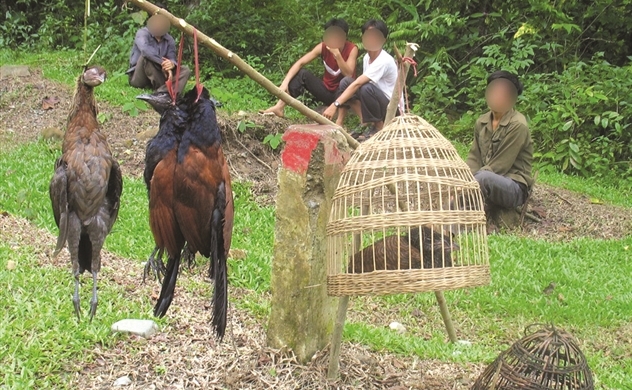As the UN Biodiversity Conference (COP 16.2) convened last week…

Wildlife trafficking still at serious levels in Vietnam
As a hotspot for wildlife trafficking and consumption since the late 80s, Vietnam is facing a risk of depletion of biodiversity.

Vietnam made a commitment to fight against wildlife trafficking at the 2018 London Conference. In reply, PanNature, a Vietnamese not-for-profit organization dedicated to conserving biodiversity, recently issued a policy bulletin on the status of wildlife in the country.
The country in the past mostly exported wildlife and served as a site for wildlife transshipment, but now it has also become a consumer of wildlife.
The wildlife demand from Vietnamese is increasingly high, depleting domestic biodiversity resources, and having a negative impact on natural resources in other countries, from the sub-Mekong Region to Africa.
Despite the ban on trading and consuming wildlife, many Vietnamese still eat wild animal meat, while restaurants still sell dishes made of wild birds and animals.
Though Vietnam ranks 16th in the world in biodiversity, the number of wildlife species has decreased from the 10th group to the 32nd.
In 1992, Vietnam had 365 species listed as Endangered (EN) in IUCN’s Red Book. The figure rose to 407 species in 2004 and to 418 three years later.
Scientists say that the last one-horn rhino in Vietnam was killed at Cat Tien National Park in 2010. The bo xam (Bos sauveli) and Batagur turtle are believed to be extinct.
Scientists say that the last one-horn rhino in Vietnam was killed at Cat Tien National Park in 2010. The bo xam (Bos sauveli) and Batagur turtle are believed to be extinct.
PanNature, in its bulletin, pointed out that though zoos have good conditions to raise wild animals for conservation purposes, the appearance of more and more private zoos for commercial trade will endanger wildlife.
In many cases, animals illegally hunted in the wild have been found at farms advertised as serving conservation purposes. The farms may also be a source of diseases that can spread to other species when animals break loose.
A team of scientists, after surveying bear farms in Vietnam, concluded that bear farms have no significance to the protection of bears in the wild. The farms pose a threat to legal enforcement.
Vietnam is one of the countries committed to fighting illegal wildlife trade. Wildlife protection is becoming stricter under regulations outlined in the amended Penal Code.
Under the amended Penal Code 2015, hunting, catching, killing, rearing, caging, transporting and trading wild animals is a crime.
The disposal of more than two tons of elephant tusks, 70 kilograms of rhino horns in 2016 gives a strong message of the government to the fight against wildlife trafficking.



